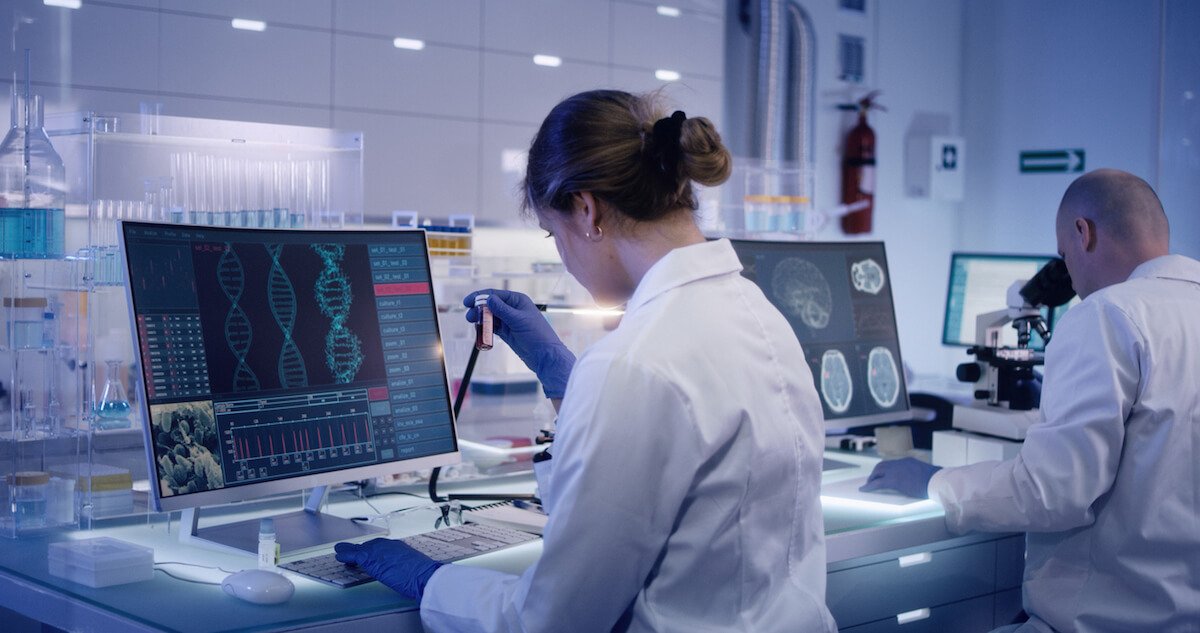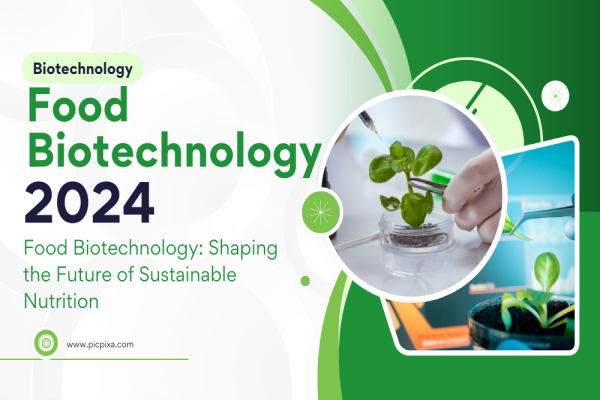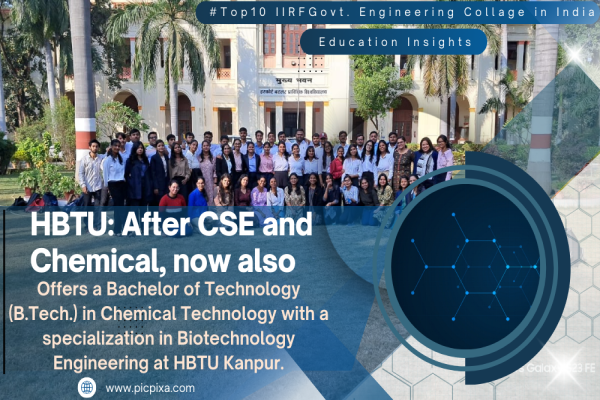Medical Biotechnology: Key to a new Era in Health Care
Biotechnology

Medical Biotechnology: Key to a New Era in Health Care
Post Details
The exciting field of biology and technology that increasingly tackles complex health challenges is referred to as medical biotechnology. From lifesaving drugs to more advanced diagnostics, it is at the center of medical breakthroughs that transform patient care. At the time that the needs of healthcare complexity and personalization reach new heights, medical biotechnology provides solutions that are more targeted, effective, and accessible. Here is a look at how medical biotechnology is revolutionizing modern healthcare and what innovations are fueling this change.
Key Innovations and Applications in Medical Biotechnology
1. Precision Gene Editing using CRISPR-Cas9
Introduction: One of the most important tools in modern biotechnology is CRISPR-Cas9, which enables precise modification of DNA. CRISPR works like molecular scissors by cutting genes at targeted points that have been designed to alter the mutation at their very source.
Impact: Such novel technology opens the doors to a possible revolutionary step in the treatment of genetic disorders such as cystic fibrosis, muscular dystrophy, or sickle cell anemia. Early trails and studies are promising, and many patients already benefit from treatments targeting genetic mutations.
Future Promise: In addition to the correction of genetic diseases, gene editing is likely to find its future use in the cure and treatment of cancer. The immune system can be designed to better identify and destroy the cancer cells.
CRISPR and other similar technologies are undergoing huge refinements that are going to make it possible for new personalized therapies based on the genetic makeup of each patient. Precision medicine is going to revolutionize with this potential utility from CRISPR.
2. Immunotherapy: Unlocking the Power of Immunity Against Cancer
Overview: Immunotherapy is the latest medication approach to cancer treatment. It is what works by using this human system's unique capacity to detect and destroy cancer cells in a manner that differs from the traditional direct treatments aimed at the cancer cells themselves.
Impact: Some of the techniques that have modified the T cells of a patient to attack cancer cells, such as CAR-T cell therapy, have been revolutionary in the treatment of certain types of leukemia and lymphoma. Immunotherapy has undoubtedly had a place as one of the most dramatic classes of treatments for patients who had no response to other therapies, and new hope has left aggressive and treatment-resistant cancers.
Future Potential: More than cancer, immunotherapy has potential to treat autoimmune diseases and chronic infections. Instead of addressing the changes in immune responses in individual cancers, the scientists are looking into ways to alter immune responses at a more general level; it can be even applied to diseases like rheumatoid arthritis, multiple sclerosis, and viral diseases.
3. Stem Cell Therapy and Regenerative Medicine
Overview The possibilities for stem cells, which have been known to differentiate into so many other cell types, are enormous. Regenerative medicine may use these stem cells to replace or restore tissues. The possibilities of the approach lie in conditions that were classified as unregenerate.
Impact: Now, due to the advanced knowledge regarding stem cell therapy of diseases like Parkinson's disease and spinal cord injuries, heart disease, and diabetes, researchers are hopeful that in the future, stem cell therapy could be utilized for these diseases. For example, in the case of spinal cord injuries, scientists are hopeful of making repairs through the use of stem cells that have been able to restore the patient's ability to move and feel.
Future Potential: Within the next decade, research in stem cells could provide a solution to the acute shortage of organs available for transplant by allowing scientists to grow fully constructed organs in labs. Bioengineering complex tissues to replace defective ones is also waiting to be discovered; it will be an event with far-reaching effects on transplant medicine.
4. Advanced Diagnostics for Early Disease Detection
Overview: Medical biotechnology has led to the development of sophisticated diagnostic technologies, allowing for the early and more accurate detection of diseases. Technologies such as PCR, next-generation sequencing, and biosensors have allowed health professionals to diagnose diseases at a molecular level.
Impact: Managing diseases like cancer, infectious diseases, and genetic disorders requires rapid, accurate diagnostics. For example, the PCR-based test that focused the entire world's attention through the COVID-19 pandemic detected viruses, bacteria, and mutations in the genetic mutation with unprecedented accuracy and led to early intervention, improving patient outcomes.
Future Potential: Early diagnostics could converge with artificial intelligence and machine learning to predict the disease risk and its progression. With data coming from genomics, lifestyle, and medical history, AI diagnostics will one day be a reality for live health monitoring in predicting proactive actions needed for healthcare.
5. Customized Medicine: Tailoring Treatment to the Individual
Medical biotechnology serves as the foundation of personalized medicine, treatments designed relative to the genetic, lifestyle, and environmental features of an individual. Instead of the "one-size-fits-all approach," this type of therapy considers all factors that maximize effectiveness for each patient.
Impact: Personalized medicine has already changed the way cancer is treated. The treatment is tailored towards the genetic makeup of a tumor, so efficacy improves and side effects are reduced, and patients do better.
Future Prospects: Since genomic information is becoming increasingly available, "personalized medicine" could soon become every other disease program that relates to heart diseases, diabetes, and neurological disorders. Eventually, intensive health profiles could emerge for every human being directing prevention and treatment strategies throughout life.
Challenges and Moral Concerns
The promises of medical biotechnology are immense; however, they also pose ethical and practical problems. For instance, gene editing raises questions about human enhancement and the unintended consequences of DNA alteration. Stem cells, mainly embryonic stem cells, have always featured at the heart of many ethical debates, and regulatory bodies must ensure advancement takes place responsibly. Finally, as biotechnology builds the road toward accessing genetic information more easily, privacy and data security issues are increasingly significant issues. The continual development in biotechnology will always be crucially balanced with ethical considerations and the rights of patients.
Future of Medical Biotechnology
The future of medical biotechnology is indeed bright, especially now with those recent innovations that are ready to revolutionize healthcare's scope. Artificial intelligence and machine learning will surely improve the pace of drug discovery, refine gene editing, and move diagnostics one step forward. Probably 3D bioprinting and organs grown in labs will end organ shortages once for all and shine new lights on the lives of transplantation patients worldwide.
Not only would it treat disease, but it would - and will - make healthcare proactive, preventive, and personalized. Further work with continued collaboration and a commitment to producing ethical innovation will reveal a healthier future for all. This field will play a key role in the solution of many of the health challenges that we are facing going forward, paving the way to a world where healthcare is more accurate, accessible, and effective than it ever has been.
By- Harshit Sharma
Related Post







Categories
Recent Post
